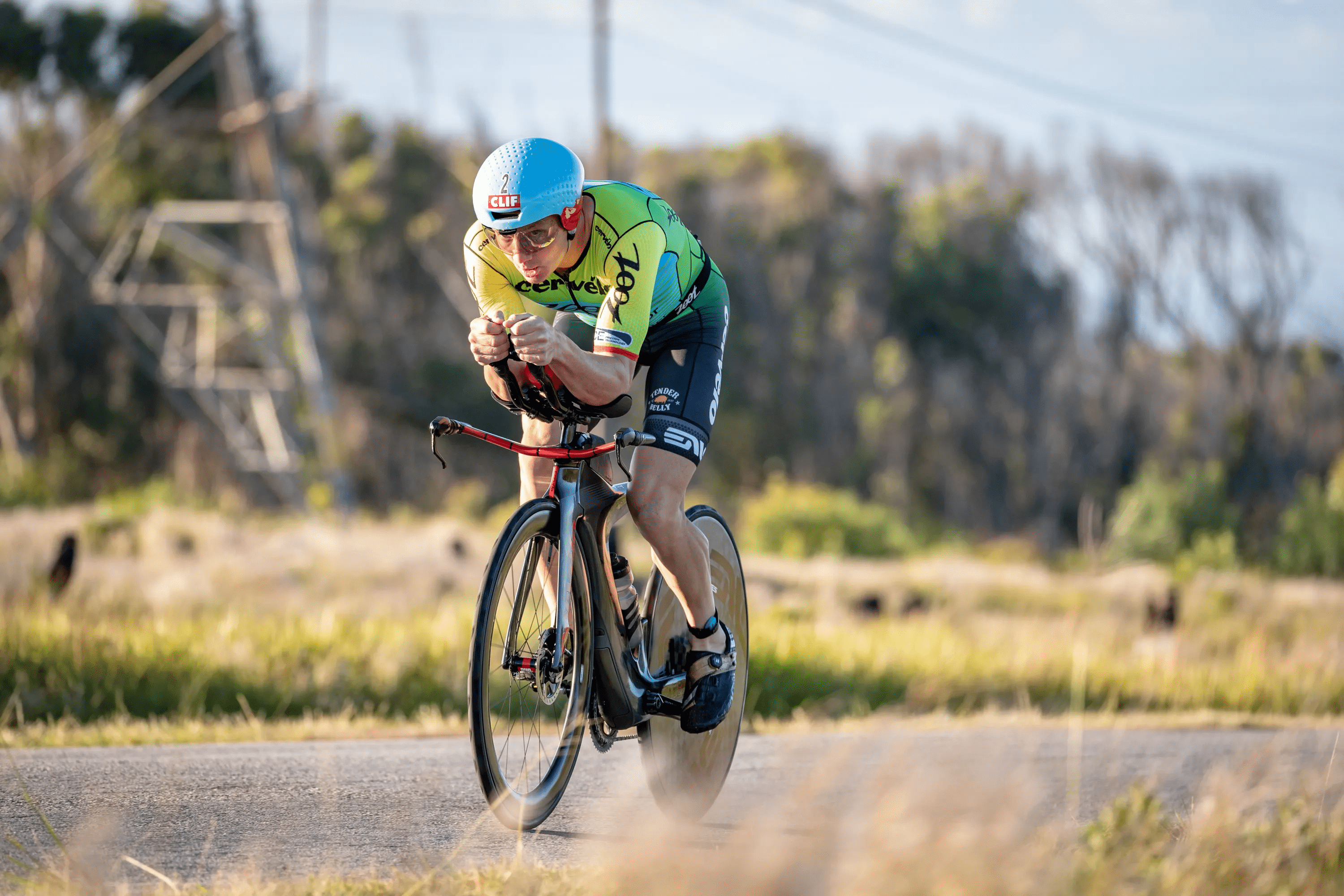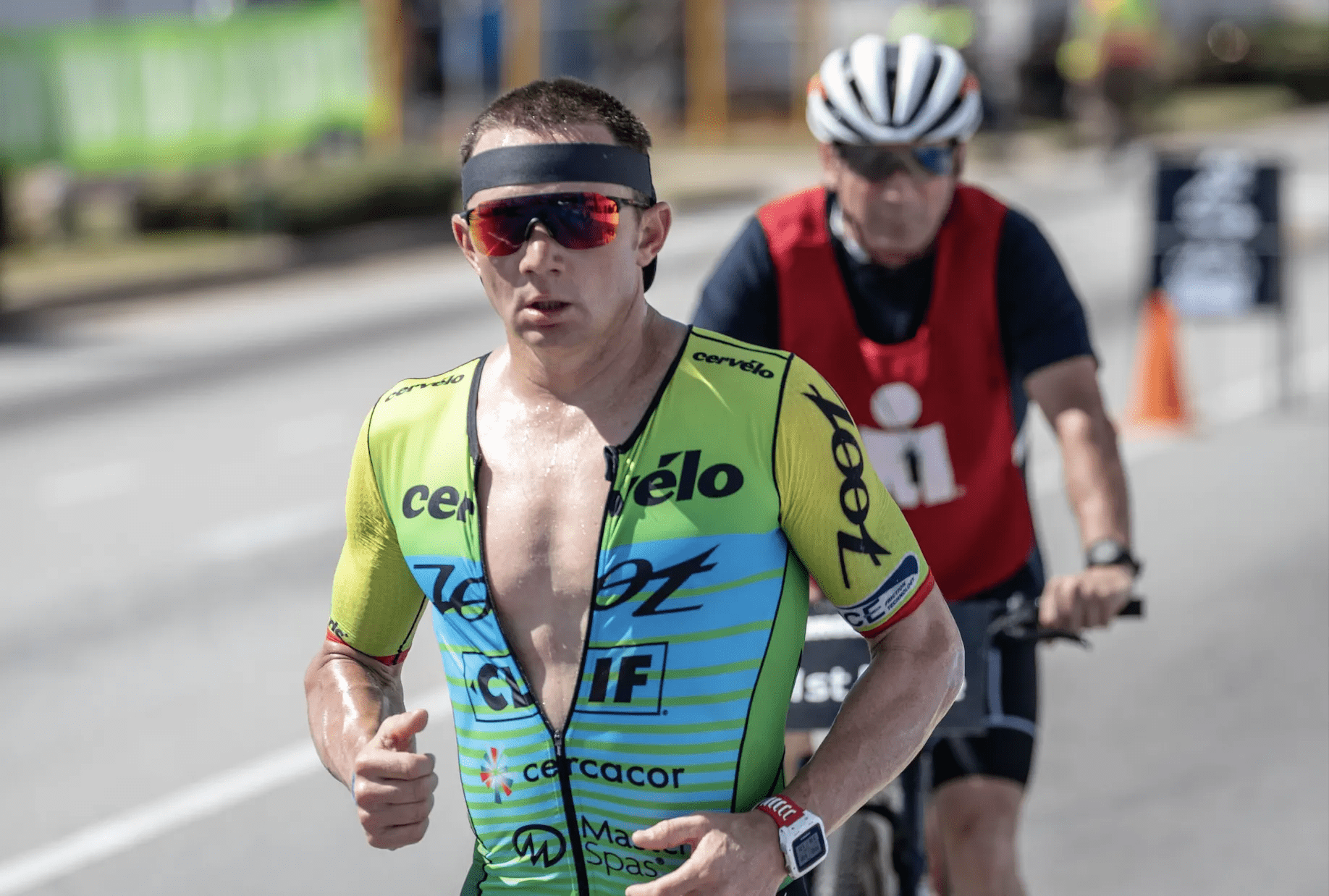By Ben Hoffman
It is the final countdown for my first Ironman of 2019, and I wanted to take a moment to review the training I have done in this build, and to reflect on some lessons I have learned from the injury I sustained last year and the subsequent forced time off.
Looking back at 2018, my initial instinct is to try and forget it as quickly as possible. After struggling through a couple of injuries, I found myself in one of the hardest positions I have endured in my professional career. Although I had some great training at times, I struggled to showcase it when it really mattered in the races, and I felt like I had let everyone down. Even though the origins of the injuries that kept me off the course were physical in nature, they also manifested themselves on the mental side, and I needed a true reset before I could come back to full health.

Photo credit to @raineduponmedia for @cervelocycles
Fast-forward a few months, and I was able to push through the trying times and gain some great perspective that has proven to be extremely important in my day-to-day approach to training and recovery. I did not simply go back to doing the same old things (see: definition of insanity) but instead utilized the forced time off to really analyze what I needed to come back as a better and stronger athlete. I have distilled it down to a few key items that I think can help others when they encounter trying situations, whether in sport or any other aspects of life.
- Recognize the difficulty, define it, and make a plan. Taking a break is harder than it sounds both mentally and physically, so don't be discouraged when the going gets tough after a few weeks on the couch. The endorphins released from being physically active trigger a positive feeling in the body, and that sudden decline can feel like the end of the world. Being prepared for these feelings and being to create a plan on how you will fill your newly found free-time with positive experiences, and how you will attack the root of the problem so it does not return. Spend time with family, rekindle or start up a new non-physical hobby, keep the mind sharp and pick up new books, meditate, and try to stay as healthy as possible by eating well and limiting downers like alcohol.
- Your support network is paramount. Having a good team around that knows you at your best will truly help in this rough time, and I find that people really want to help, especially when you ask for it. The training stops and your goals may feel out of reach, but all of the work is not lost. While no one can truly understand exactly how you feel, they will certainly try to empathize, and recognizing their support, whatever form it arrives in, will help you understand that you will eventually heal. Seek out the advice and assistance of experts that can shed light on your best path to recovery. I made sure to visit with specialists, specifically physical therapists, reviewed my Cercacor Ember data and read as much as I could about my injury. Sometimes injuries can be multifaceted and very complicated, so it may take time to get the information. No one expects you to be an expert about your injury or setback, so I encourage you to reach out for expert opinions and allow them to help guide you back to health.
- Visualization can help. I mentioned meditation in the first item which has truly been helpful for me through my recovery and return to sport. Taking a step back and seeing your life as a big picture instead of ruminating in each moment will help you break down the recovery process into smaller pieces that feel more manageable. Start small with simple breathing practices that can draw you more into the present moment and help calm you down. When you are completely focused on a singular goal, it can be hard to see some of the other positive things in your life, so see this as an opportunity to attend to other things in your life. I was able to spend more time with my wife, have more energy for reading, wood and metal working, and we even started a family!
- Listen to your body. Even with the help of experts, often you know best. Sometimes you may not even understand exactly why you are feeling the way you do until later, but when your body sends a signal, be mindful and take pause. Reflecting on my injury, it was mostly a surprise, but when I went back and dissected the data and the very small signs my body was giving me, it was clear that I was on the verge of going too far.
- Patience is everything. In some ways, you really have no choice, but being patient is so important. Although we may feel like we have to rush back out and get going on our goals again, this often leads to a premature comeback and more injury or setback. Take the proper rest time, and then a little more, before trying to return. I remember feeling like it would be impossible to return to my top form, but after 3 months of consistent and dedicated work, I am back to where I left before my injury. In the grand scheme, three months is not a long time.

The way I implemented these items in my comeback was to immediately visit with multiple doctors, therapists, and to read as much as I could about the injury. I built out a plan for my recovery that involved a prolonged period of rest (12 weeks of nothing), then a steady comeback with light swimming, mobility, and strength. As we built back slowly, I increased the strength training, adding cycling, and continued to take supplements for Calcium and Vitamin D to help my bones heal. Finally, after 6 weeks, I started a very slow running program of a 1-minute run, 2-minutes walk for 2 miles. It was not until almost 3 full months after the injury that I resumed full training again, and even then it was constant communication between my coach, physical therapist, massage therapist, and everyone else on my team to make sure we did not push too far too fast. I continued to use my Cercacor Ember throughout this entire process to monitor fatigue, hydration, training readiness, and general health so I would have the best picture of how my body was responding to the recovery process.
An injury or major life setback will never be easy, but the beauty of coming back from one lies in the deeper appreciation of your health and of the times when things are good. I am a major believer in having reference points in life, and sometimes these have to be bad in order to make the good feel great! Keep a positive mental outlook, surround yourself with good people who will lift you up, and keep doing the work every day.
See you out there,
Ben





